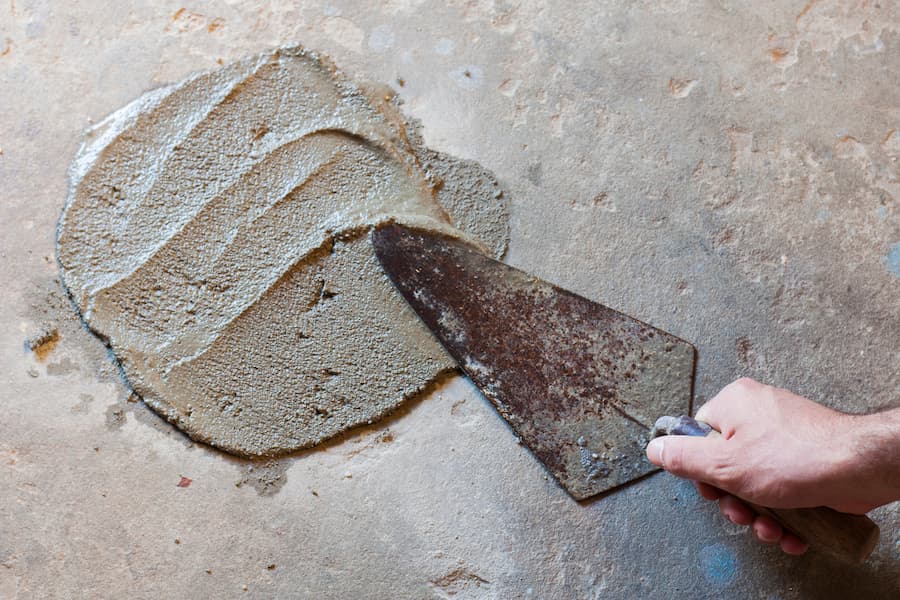How strong is your grout?

Whether you are fixing a dynamic load such as a compressor, engine or rotary equipment, or you are simply securing a seriously heavy load, the grout you choose needs to stand up to the job.
Think about the amount of stress that grout must endures once it has set: massive mechanical forces such as vibration, oscillation and impact need to be absorbed and dissipated, so as not to affect the structural integrity of the underlying concrete foundations.
Therefore, ensuring your grout is strong enough for your project is critical!
Compressive strength vs tensile strength
Grout is usually assessed and tested to a wide range of Standards, however the specific compressive strength test falls under Australian Standard AS1478-2005. This covers both compressive strength – the ability to withstand a downward force – and tensile strength which is the ability of the grout to hold fast and not break apart.
The ability of the grout to resist the weight of the machine being placed on it is referred to as its compressive strength. Typically grouts used for structural components such as columns require high compressive strength with less focus on tensile strength. This is because they are static, and not as frequently subjected to dynamic loads.
However, when the grout is used in an application where it has to resist sideways, oscillating and back and forth forces, as well as the weight of the machinery, its tensile strength becomes more important.
Cementitious vs epoxy grouts for dynamic loads
Although cement based grouts can have a high compressive strength, they will by nature have relatively lower tensile strength compared to epoxy grouts.
Epoxy grouts are known for their high strength and chemical resistance due to their chemical makeup. This means they’re better at resisting the dynamic forces of moving and vibrating machinery and may be more suitable for mill tables, pumps and crane rails.
However when using epoxy grouts, it is important to mix the components precisely in order to achieve the desired strength. Altering the mix ratio of epoxy grouts, even slightly, means they will not cure to their full potential. They may stay tacky after setting, and not offer the same strength.
On the other hand, most cementitious grouts enable some leeway on site. They usually permit the amount of water added to be increased or decreased a little, without significant loss of strength. Some cement based grouts are formulated to be mixed to a flowable almost liquid state, right through to a thick packable paste, depending on the application. For this reason, cementitious grouts are more of an all-rounder.
Penaflow Panel Grout for example suggests adding 2.7 litres of water to a bag to achieve a stiff grout, and up to 4 litres of water to achieve a pourable consistency.
Cementitious grouts such as this may be the best choice for filling large or difficult to access gaps because they can be mixed to a more fluid consistency and pumped under large machines.
High early strength grout
Depending on the project, how quickly a grout gains its strength may be a deciding factor when choosing a grout. Compressive strength development time is important when on site turnaround times are critical – for example a forced site shutdown whilst machinery is regrouted.
High early strength (often abbreviated to HES) grouts can achieve over 30MPa in as little as 2 hours, which may be sufficient to allow a machine to go straight back into service after engineering approval. However, their 28 day strength is typically less.
Selecting the right strength grout can be a delicate balancing act and requires you to weigh up all the contributing factors for your unique job.
How to choose the right grout
Regardless of your application, you’ll need specialist engineering advice to help you select the right grout for your job. Always check the specifications for your project, and consult the machinery manufacturer for detailed fixing and mounting information.
Once you have all the necessary information at hand, you are in a better informed position to evaluate the range of grouts on the market.
Jaybro has a wide range of grouts available to buy online, many with extensive specifications, technical data sheets and SDS’s available for download. Additionally, our specialist team has industry experience – please get in touch with our concrete chemicals team if you need assistance choosing the right grout.
 Sign In
Sign In 

